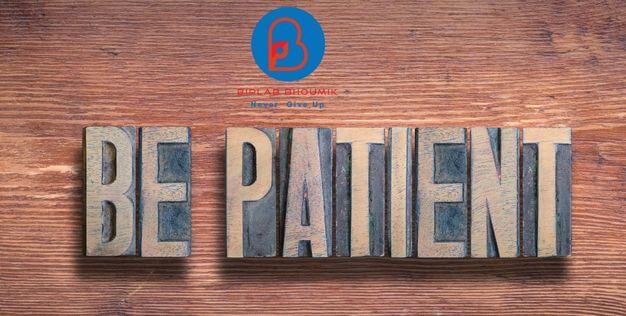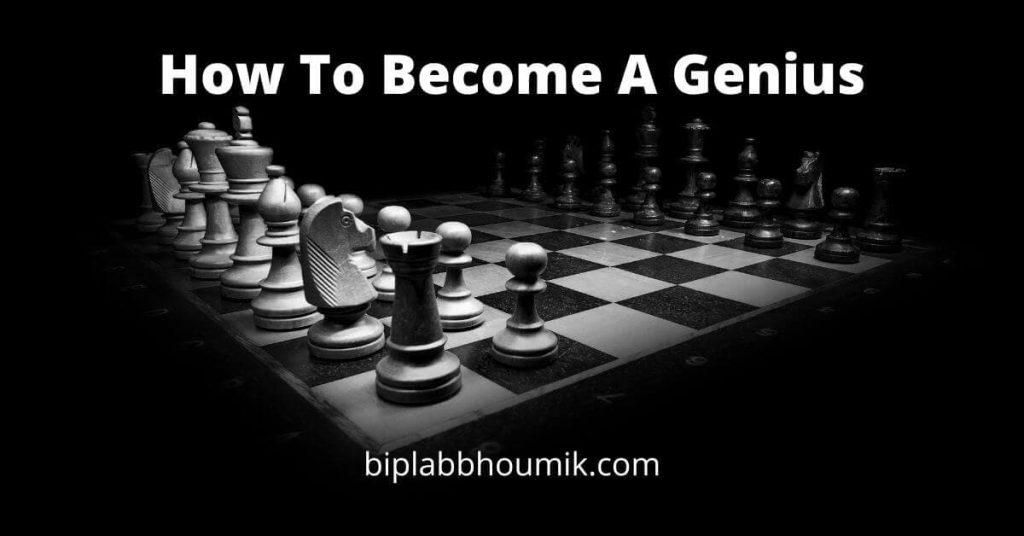When faced with a decision, it can be difficult to know what to do. There are so many factors to consider and it can be hard to know which one is most important. Decisions demand time and thought. Whether you’re making a small or large decision, it’s important to follow a few simple steps to ensure a good outcome. In this article, we will discuss the 16 best-proven tips on how to make a decision in the context of your own life.
How To Make A Decision?
There are certain decisions we all face, whether big or small. Whether it’s something as simple as choosing what to eat for breakfast, picking a career, moving to a new city, or even deciding what to wear on a date – we all have to make a decision at some point. And, like anything else, making a decision quickly and effectively can be tough. Here are the best 16 tips to make a decision easily:
1. Define the Decision
Make sure you understand what the decision is and what it means for you. This will help you focus on what’s important and keep distractions at bay.
Decisions require time, thought, and effort. They often have far-reaching consequences and can be tough to make. It’s important to take the time to think through the decision thoroughly before making it, in order to make the best decision for you. Here are a few tips to help you make a decision that’s right for you:
1. Define the problem: What is it that you want to solve or achieve? Once you have a clear understanding of what this problem is, you can start to develop possible solutions.
2. Evaluate your options: Once you know what the problem is, think about all of the potential solutions that could solve it. Analyze each option carefully and weigh its pros and cons before making your decision.
3. Consider all of your goals: When making any big decisions, it’s important to keep in mind your long-term goals as well as your immediate needs and desires. Make sure that whatever choice you make aligns with both sets of goals.
2. Clarify Your Options
When faced with a difficult decision, it can be helpful to clarify your options. This can help you to determine which option is best for you and which would result in the least negative consequences. Here are a few steps that you can take to make this determination:
1) Identify the goal or objectives of your decision. What do you want to achieve by making this choice?
2) Consider all of the possible outcomes of your decision. What are the potential benefits and risks associated with each option?

3) List all of the factors that could influence your decision, such as cost, time, convenience, and risk. Think about everything from environmental factors (e.g., climate change) to social considerations (e.g., how others will perceive your choice).
4) Once you have identified all of the factors that could impact your decision, rank them according to importance. Consider first those factors that are most important to you, followed by those that are less important but still deserve consideration. Finally, consider those factors that are least important and should be eliminated from consideration altogether.
5) Select an option based on how well it meets your goals and objectives and takes into account the combined impact of all of the factors that you considered.
6) Review your decision regularly to be sure that it remains the best option for you. If you change your mind about your choice, make sure to update your decision plan accordingly.
7) Be patient–making a difficult decision can take time, but ultimately the end result will be worth it.
8) If you find yourself making too many decisions that are based on emotion rather than logic, try using a decision-making tool (e.g., a questionnaire or brainstorming session) to help you develop more objective criteria for selecting options.
9) Remember: It’s never too late to make a change in your decision-making process! With a little effort and practice, you’ll soon be able to make quick and effective choices that reflect your own personal values and priorities.
When you have a good understanding of what you’re deciding, it’s time to explore your options. Do your research and get as much information as you can. This will help you make the best decision and avoid any regret or second guessing.
3. Think About the Consequences
There are a few things to consider when making a decision to give context. The first is the potential consequences of providing information. For example, if we provide too much context, it could lead our opponents to misinterpret our intentions or strategies. This could lead to them making faulty assumptions or taking inappropriate actions, which could have negative consequences for us.
Another consideration is the potential impact that providing context might have on our relationships with other stakeholders. If we choose to provide too much information, it might create tensions with those who are important to us. By withholding certain details, we can maintain a better relationship and avoid any potential conflicts.
Ultimately, it’s important to think about the consequences of giving or withholding context before making a decision. This will help us weigh the pros and cons carefully and make the best decision for ourselves and our team.
4. Consider the Time Frame
Another important factor to consider when making a decision is the time frame. When we make a decision, we often think about the present and the future. But sometimes it’s important to focus on the past as well. This is especially true when we’re making a difficult or important decision. By understanding what happened in the past, we can better understand how things transpired and draw conclusions about what might happen in the future.
5. Assess Our Options all time
Once we have considered our options and weighed the consequences, it’s time to assess our strengths and weaknesses. This is where our analysis of the situation comes into play. We need to identify which options are most likely to result in success for us and which could lead to disaster.
6. Make a Plan
Once we have assessed our options, it’s time to develop a plan of action. This plan should include everything from identifying who will be responsible for each step of the process to setting timelines for each stage of the process.
When making decisions, it is important to consider the context in which the choice is being made. This includes understanding the stakes involved as well as any potential consequences. It can be difficult to make a decision when we don’t have all of the information, but by taking into account all of the available information, we can make a better decision.

When making a decision, it is helpful to create a plan of action. This plan should include everything from identifying who will be responsible for each step of the process to setting timelines for each stage of the process. By following this plan and ensuring that everyone involved is aware of what needs to be done, we can ensure that our decisions are effective and reflect our best interests.
7. Be Bold
Sometimes the best decision is the boldest one. Go for it! Don’t be afraid to take on new challenges or try something new. If something feels risky, but there’s a good chance you can achieve your goals, go for it! This may mean taking on new challenges or trying something new. However, it is important to remember that not everything needs to be a risk-taking proposition. Sometimes the safest option is the best one.

8. Stay Flexible
In order to make decisions that are effective and reflect our best interests, we need to be flexible. This means being willing to change our plans as new information comes in or circumstances change. It can also mean being willing to compromise on our ideals in order to reach a compromise that we believe is better for everyone involved. Being flexible allows us to take advantage of opportunities as they arise, and it makes it easier for us to compromise in a constructive way.

9. Be Patient
It can be tough trying to make a decision when we’re feeling impatient or stressed. However, patience is crucial when making decisions. If we try too hard to come up with an answer right away, we may end up making mistakes due to rushing the process. It’s also important not to pressure ourselves into making a decision quickly when there are complex options involved. Instead, take the time necessary to consider all of the options carefully before coming up with an answer.

10. Don’t Take Things Personally
When we make decisions, sometimes people may get hurt or upset as a result. However, it’s important not to take things personally. Oversimplifying complicated situations often leads us down negative paths without ever achieving our goals or objectives. Instead of getting caught up in the drama, try staying objective and understanding what happened from both sides of the equation. This will help us make more informed decisions in the future.”
11. Set A Deadline
Set a deadline for yourself and stick to it. This will help you stay focused and motivated.
When making a decision, it is crucial to have a deadline in mind. This will help you stay focused and motivated. When you have a set deadline, it will help you to stay organized and make sure that all of your information is taken into consideration.
Additionally, setting a deadline will also help you to avoid procrastination. If you know that you have only a certain amount of time to make a decision, you are more likely to take the time needed to think about the situation carefully.
12. Take Action
Once you’ve made your decision, take action on it. Don’t dawdle–you don’t want to regret your decision later. If you are considering giving context to a decision, it is important to take action on it as soon as possible. Waiting can cause you to second-guess your decision and potentially regret it in the future.
It’s also important not to dawdle; if you can, take steps immediately to put your decision into motion. Doing so will help ensure that you make the best possible choice for yourself and your team.

13. Reflect on Your Decision
Once you’ve made your decision, take some time to reflect on it. This will help you remember why you made the choice you did and what the consequences were.
If you’re looking for a definitive answer to a question, it’s usually not the best idea to base your decision on just one piece of information. Taking the time to gather as much information as possible will help you make an informed decision. This is particularly important when making decisions that have long-term consequences, like whether or not to start a business.

When evaluating options, it’s important to consider all the relevant factors. This means gathering data from different sources and crunching numbers in order to come up with an accurate estimate of what each option would cost and what the benefits might be. Gathering this information can be difficult, but it’s essential if you want to make an informed choice that’ll benefit both you and future generations.
14. Always Stay Positive
Don’t let negative thoughts get the best of you. Keep a positive attitude and you’ll be on your way to making great decisions every time.
One of the most important things you can do to make good decisions is to stay positive. It’s easy to let negative thoughts get the best of you and cloud your judgment. But remember, you have the power to change your mindset and approach any situation in a positive light.
When faced with a decision, try not to let emotions get in the way. Be objective and think about all of the possible outcomes. What are the pros and cons? How will this decision affect me, my team, or our organization? Once you’ve weighed all of the factors, make a decision based on what’s best for everyone involved.
15. Remember: Practice Makes Perfect
Don’t be afraid to practice making decisions. Take some time to try out different strategies and see which ones work best for you. You’ll soon find that making decisions becomes easier and more manageable.
There are many ways to make decisions, all of which have benefits and drawbacks. To start, it’s important to be comfortable with making choices. This can be accomplished by practicing making decisions in different situations. Once you’re comfortable with making decisions, you can start to use strategies to help you make better choices. Some of the most common strategies are brainstorming, using a checklist, and seeking input from others. Practice makes perfect, so don’t be afraid to try out different methods until you find one that works best for you.
16. Celebrate Your Success
Celebrate your success! There’s no better way to learn than by doing. And, who knows–maybe you’ll make another great decision as a result!
As you reflect on your accomplishments and take stock of where you are today, don’t forget to celebrate. Honoring your successes not only sets a positive example for others but can also help unlock the potential for even greater achievements in the future.

By taking time to appreciate your successes, you’ll learn valuable lessons that can help guide you in future endeavors. So whether it’s celebrating a recent accomplishment or recognizing progress over time, taking some time to enjoy the fruits of your labor will pay off dividends down the road!
Conclusion
These 16 best-proven tips for making decisions quickly and effectively can help you make the best decisions possible – no matter what the situation may be. So, what are you waiting for? Let’s get started!











